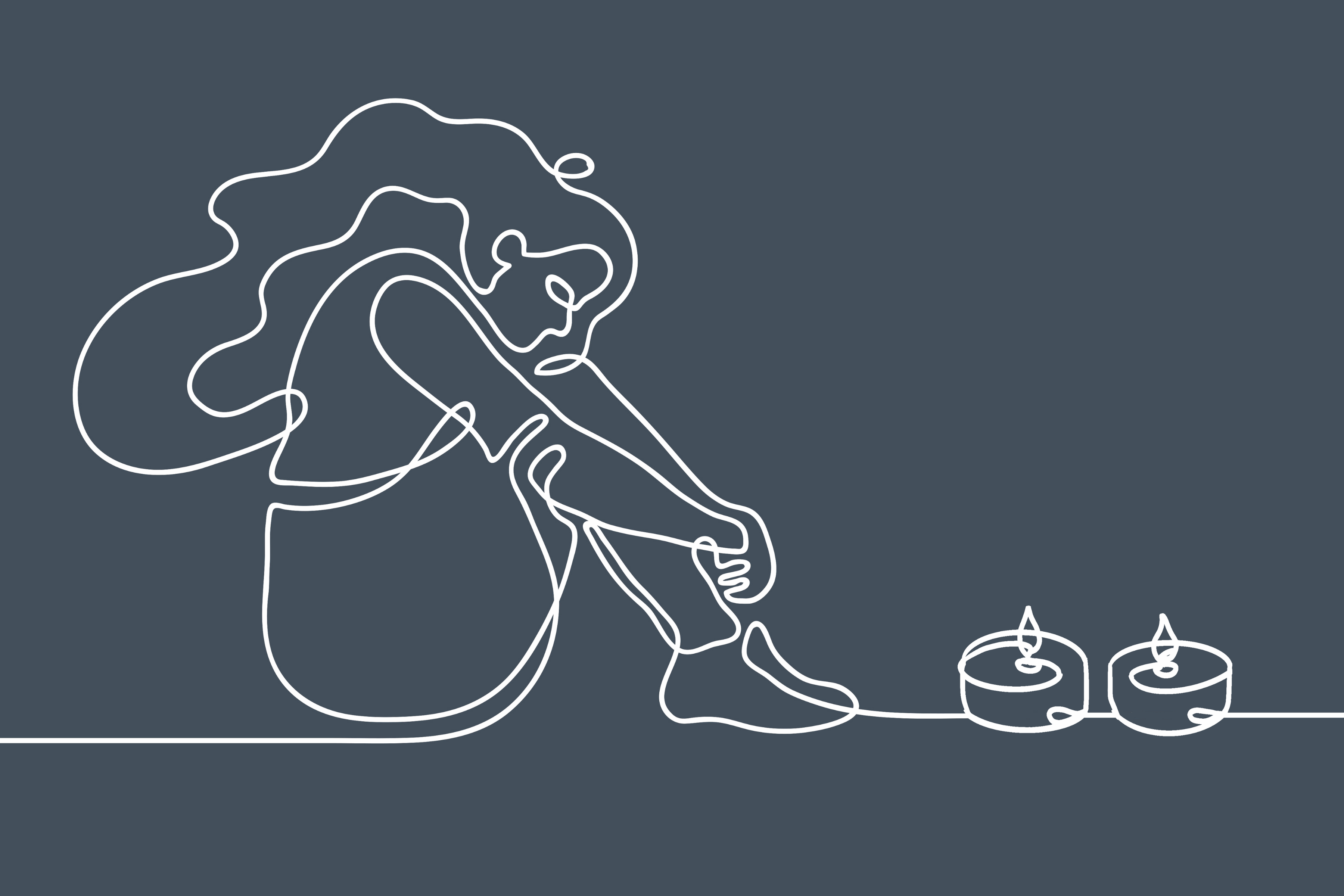I lost both of my parents two years apart when I was in my early 20s. The first years of grief were a blur of attempts at survival. I could see the “fun years” passing me by, like I was on a high-speed train to maturity and they were cows grazing in the distance. Meanwhile, my sister and I were plunged into the specifically terrible depths of logistical and bureaucratic hell that come with losing two parents too close together and too young.
Suddenly, our to-do list included, but was not limited to: restructuring our family’s tax plan, managing a major home repair, sorting through 25 years of accumulated family possessions, commissioning an estate sale, selling a house and a car, closing out our father’s business, settling his lawsuits and canceling what felt like 3,000 bills.
I now host a grief support group for people who have lost both parents, and we all agree that the unique reality of losing two parents is, put simply, the worst. If you’re not in our club (of which no one wants to be a member), imagine all the things you didn’t have to know when you were 22, and then imagine having to figure them all out at once while grief and shock have taken over your brain and you’re running at a sleepless, 10% capacity.
I was also too traumatized by my dad’s death to travel back home to my hometown of Highland Park, Illinois. I was instead living in a closet in a four-bedroom Brooklyn walk-up, wishing I could be like normal people my age, not having a bed-frame and gossiping about who got cut from their improv team.
Years later, I realized that in my efforts to survive, I never grieved. I don’t think I had space to do so, either. To be so young and to experience an event so atypical for one’s age group is isolating. No one who knows you will know how to do or say the right thing. And no one who doesn’t know you will expect that both of your parents are gone.
I watched friends travel home to see their parents during Jewish holidays, a privilege I would never have again, and I’d listen upon their return as they explained how overbearing their moms were. “Sorry that your living mom loves you so much,” I would think. “Heart goes out.”
On first dates I fielded series of questions that were meant to be “get to know ya” but would send me into fight-or-flight. “So do your parents still live outside Chicago?” Live? No.
I was an actress in a multi-year, unscripted play called “Being a Regular Person.” I never took a day off.
Then, there was the matter of faith. What did Judaism offer during my darkest days? My answer, to be honest, is seemingly nothing.
Without a clear picture of an idyllic afterlife, Jewish people don’t get to picture our deceased parents looking down on us from heaven. We don’t get to curb the pain of missing them by knowing that we’ll eventually reunite in “a better place.” Frankly, we don’t even get an easy prayer.
During the first Yom Kippur service after my mom passed, I skipped ahead in the prayer book and scanned the Mourner’s Kaddish, preparing myself for the first time I’d be one of the people who stands.
Hoping for words of comfort or advice, I was disappointed. The Mourner’s Kaddish isn’t even a prayer about dead people. It’s about exalting the greatness of the lord. “The lord doesn’t seem so great right now,” I thought.
On top of confusion, there was burden. From a young age, I was taught to remember that modern-day Ashkenazi Jews are lucky to be here, and that we have to do right by the generations of people before us who sacrificed to make our presence possible.
When your parents are gone, that’s all on you. You immediately become the primary bearer of family lore, passed-down memories and physical heirlooms. Indeed, after my parents died, thousands of years of history were condensed to two big Rubbermaid tubs that my sister and I now keep in our closets.
The lack of answers I found around death in Judaism can be frustrating, but it’s liberating, too. I was never once told by a Jewish person that there was a “reason” for any of the suffering I was going through, or that my parents were going through too, for that matter, before their deaths. Accepting the randomness of it was helpful. No one was to blame.
I was also never given all-too-convenient answers for the big questions that death always asks. Instead, once the dust of the logistics phase settled, I was forced to sit in my pain and make friends with ambiguity. I started to understand that my life would become an endless quest cycling through phases of question and answer, question and answer, so I should get used to it.
Every year, without my family traditions to look forward to, I could pick what I loved about my upbringing and then make the rest my own. I now host a seder for my friends, having expanded my definition of family and tradition to fit the life I live.
I’ve come to find comfort in Jewish non-answers. Fellow Jews sit with me in my suffering, and they never try to fix it. That, alone, is comfort.
I’ve also tried to focus on the concept of tikkun olam. Channeling my grief into action, I now host a support group for young folks who have lost both parents.
And every Yom Kippur, when I light the Yahrzeit, I say the Mourner’s Kaddish, and I know better than to expect to find answers. Instead, I find comfort in knowing that the generations before me didn’t just say the exact same words. They probably asked the exact same questions too.



